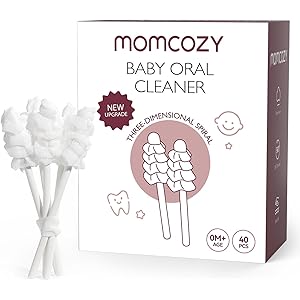Huggies Size 7 Overnites Baby Diapers: Overnight Diapers, Size 7 (41+ lbs), 68 Ct (2 Packs of 34), Packaging May Vary
$52.01 (as of October 13, 2025 17:48 GMT +00:00 - More infoProduct prices and availability are accurate as of the date/time indicated and are subject to change. Any price and availability information displayed on [relevant Amazon Site(s), as applicable] at the time of purchase will apply to the purchase of this product.)Understanding Pregnancy Knee Pain
Pregnancy knee pain is a common discomfort experienced by many expecting mothers. As the body undergoes significant changes during pregnancy, the added weight and hormonal fluctuations can lead to increased pressure on the knees. This discomfort can manifest as sharp pain, aching, or even swelling, making it essential for pregnant women to understand the underlying causes and seek appropriate relief.
Causes of Knee Pain During Pregnancy
Several factors contribute to pregnancy knee pain. One primary cause is the increase in body weight, which places additional stress on the knee joints. Additionally, hormonal changes, particularly the increase in relaxin, can lead to the loosening of ligaments, making the knees more susceptible to strain. Other contributing factors may include changes in posture, lack of exercise, and pre-existing conditions such as arthritis.
Symptoms Associated with Pregnancy Knee Pain
Symptoms of pregnancy knee pain can vary widely among individuals. Common signs include localized pain around the knee joint, swelling, stiffness, and difficulty in bending or straightening the leg. Some women may also experience radiating pain that travels down the leg or a feeling of instability in the knee. Recognizing these symptoms early can help in managing the discomfort effectively.
When to Seek Medical Advice
While mild knee pain can be a normal part of pregnancy, it is crucial to consult a healthcare provider if the pain is severe, persistent, or accompanied by other symptoms such as swelling in the calf, redness, or warmth. These could indicate more serious conditions, such as deep vein thrombosis or other complications that require immediate attention.
Home Remedies for Relief
There are several home remedies that can help alleviate pregnancy knee pain. Resting the affected knee, applying ice packs, and elevating the leg can reduce swelling and discomfort. Gentle stretching and strengthening exercises, as recommended by a healthcare provider, can also improve flexibility and support the knee joint. Additionally, wearing supportive footwear and using knee pads during activities can provide extra cushioning.
Physical Therapy Options
Physical therapy can be an effective way to manage pregnancy knee pain. A physical therapist can design a personalized exercise program that focuses on strengthening the muscles around the knee, improving flexibility, and correcting posture. Techniques such as ultrasound therapy, massage, and guided exercises can also help reduce pain and enhance mobility.
Preventive Measures to Consider
Preventing pregnancy knee pain involves adopting healthy habits throughout pregnancy. Maintaining a balanced diet rich in calcium and vitamin D can support bone health, while regular, low-impact exercises such as swimming or walking can strengthen the muscles that support the knees. Additionally, practicing good posture and avoiding excessive weight gain can help minimize stress on the knees.
The Role of Supportive Gear
Using supportive gear can significantly alleviate pregnancy knee pain. Maternity support belts can help distribute weight more evenly, reducing strain on the knees. Knee braces or sleeves can provide additional support and stability, especially during physical activities. Consulting with a healthcare provider about the appropriate type of support gear is advisable.
Long-term Effects of Knee Pain During Pregnancy
For some women, pregnancy knee pain may persist even after childbirth. It is essential to address any lingering discomfort through appropriate rehabilitation and self-care strategies. Engaging in postnatal exercises that focus on strengthening the knee and surrounding muscles can aid recovery and prevent future issues.
Conclusion
Understanding and managing pregnancy knee pain is vital for maintaining comfort and mobility during pregnancy. By recognizing the causes, symptoms, and available treatment options, expecting mothers can take proactive steps to alleviate discomfort and ensure a healthier pregnancy experience.



